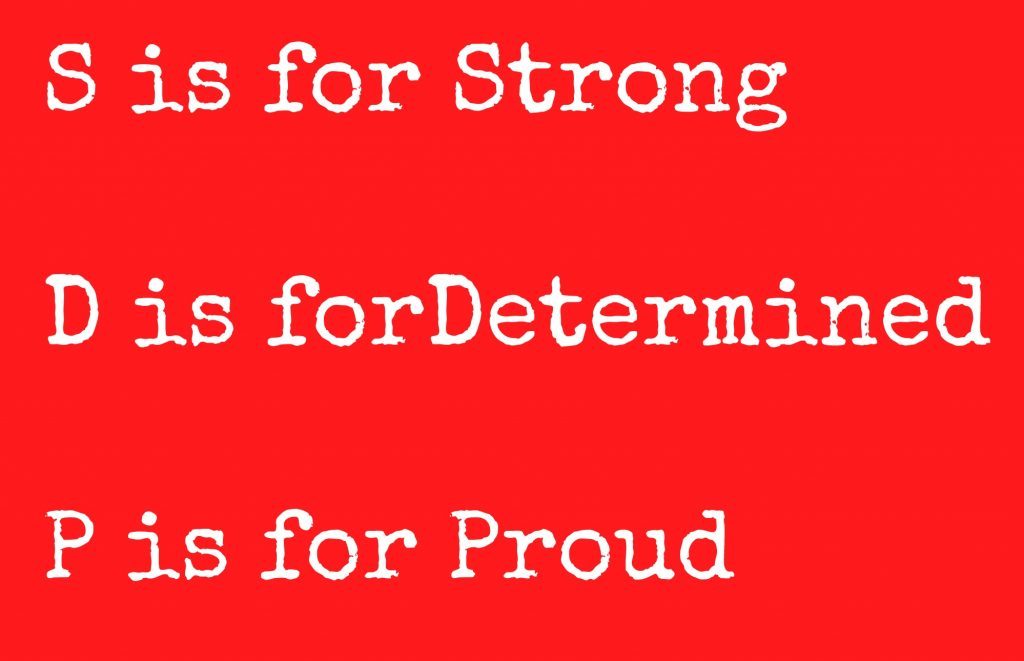Our son has SPD.
SPD stands for Sensory Processing Disorder.
What does sensory processing disorder mean?
Sensory processing (originally called “sensory integration dysfunction” or SID) refers to the way the nervous system receives messages from the senses and turns them into appropriate motor and behavioral responses. Whether you are biting into a sandwich, riding a bicycle, or reading a book, your successful completion of the activity requires accurate processing of sensation.Sensory Processing Disorder (SPD), exists when sensory signals are either not detected or don’t get organised into appropriate responses. Pioneering occupational therapist, educational psychologist, and neuroscientist A. Jean Ayres, PhD, likened SPD to a neurological “traffic jam” that prevents certain parts of the brain from receiving the information needed to interpret sensory information correctly. A person with SPD finds it difficult to process and act upon information received through the senses, which creates challenges in performing countless everyday tasks. Motor clumsiness, behavioral problems, anxiety, depression, school failure, and many other problems may impact those who do not have effective treatment. Source – Star Institute
For our boy, I explain it this way: his brain sometimes simply cannot cope with things that other people are not bothered by, and he struggles to process those things and not let them worry him or stress him out. For you or me, the smoke alarm going off when someone burns toast is an annoyance, for our boy, it’s a high pitched noise that makes his brain hurt and it has to stop or he can’t cope. For you or me getting very hot and sweaty is not much fun but we manage, for him, getting very hot and sweaty makes him feel like he is cannot manage. For you or me, a hot crowded bus is inconvenient, for him, it feels like slow torture. There are some things he manages ok, and as we and he have learned as we go, he has mastered coping with certain things better (he no longer freaks out when the school tested the fire alarms for example, because he knows what it means and he is allowed to wear his ear defenders) but some of the things in life most people don’t think about or brush off, he struggles with and probably will all his life, although we are determined to help him to live life and to get the most out of it and to help him learn to negotiate and cope, pretty much like most parents do for their kids.SPD can sound very negative, and it isn’t an easy journey to travel, but we are learning as we go. However, I have an alternative description and words to describe SPD. It goes like this…
S is for STRONG
My boy is strong. He deals with things his peers don’t face and never will have to. He works hard to manage and he puts up a very good fight to slot into life where life doesn’t always adjust or understand him.
P is for PROUD
We are INCREDIBLY PROUD of our son. He makes us smile a lot, he makes me cry tears of pride every time he does something new that he’s never faced before, or something that he has struggled with, that he wants to conquer. He works hard, he is brave and will try new things, he excels at dance, maths, all things musical, he wants to make friends and he has friends and family who love him, and he is compassionate, kind and good at many things.
D is for DETERMINED
No matter what life throws at us, as parents we are determined to help our son get to where he needs to be, to encourage his goals and dreams and facilitate them where ever we can. We will watch him fly and reach his dreams, and we will not let anyone tell him he can’t. Our son has a streak of stubbornness and determination that can be hard to negotiate round, but that will help him to walk his path and be the amazing person he is meant to be. We think that is a good way to speak about SPD. Our son has proved time and time and again that he has the will, if there is a way, and we follow that lead. SPD is not all about the doom and gloom of not coping, but an alternative or slightly diverted path on the parenting road. We work on what works for him, and help him to manage the stuff that is challenging.
Strong, Proud, Determined. That’s what we like to say and we will keep saying it. He’s not broken, just managing life in a way that works for him.
